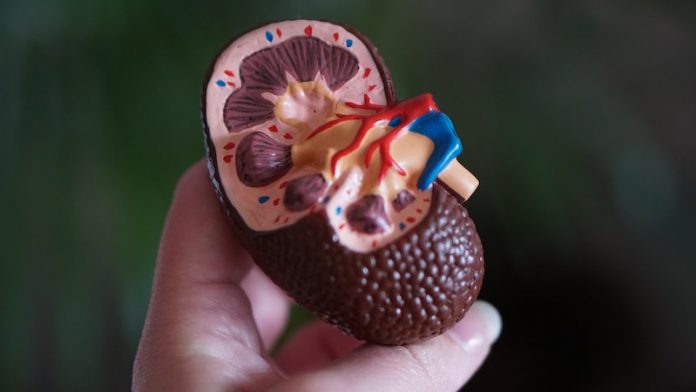
Scientists from Duke University found that the virus that causes COVID-19, SARS-CoV-2, can directly infect a specialized type of kidney cell.
The discovery helps explain why acute kidney injury is one of the main complications observed in patients with severe COVID-19.
The research is published in the journal Frontiers in Cell and Developmental Biology and was conducted by Samira Musah et al.
When COVID-19 began spreading across the globe in early 2020, physicians knew that the virus primarily infected cells in the respiratory tract.
But as the case numbers began to grow, physicians were surprised to see that many patients––especially those with severe COVID-19––were also developing injuries to their kidneys.
Previously, the team showed how patients who had never experienced any kidney-related issues were developing kidney disease after getting sick with COVID-19.
They showed that they could guide human induced pluripotent stem cells to develop and mature into functional podocytes, which is a specific type of kidney cell that helps control the removal of toxins and waste from the blood.
In the current study, the team found how and why SARS-CoV-2 was capable of damaging kidney cells.
They discovered that the spike protein of the virus could directly bind to numerous receptors on the surface of podocytes.
The virus was especially adept at binding to two key receptors on the surface of the podocytes, and these receptors are abundant in these kidney cells.
They also found that when they increased the dose of the virus, the uptake would increase even further. The virus seemed to have a strong affinity for these kidney cells.
The team observed that once the virus infected the cells, it damaged the podocytes, causing their long, finger-like structures, which help filter blood, to retract and shrivel.
If the injuries to the cells were too severe, the podocytes would die.
Now the team hopes to expand their work to study how the different variants of SARS-CoV-2 behave in kidney cells. As variants of the virus have emerged, kidney injuries are occurring less frequently.
This has made the team question how the new variants are changing and if they are becoming less capable of infecting kidney cells.
Sign up for our newsletter for more information about this topic.
If you care about kidney health, please read studies about how to protect your kidneys from diabetes, and best and worst diets for diabetic kidney disease.
For more information about COVID, please see recent studies about a new drug that could prevent COVID-19, and results showing scientists find antibodies that can neutralize Omicron.
Copyright © 2022 Knowridge Science Report. All rights reserved.



